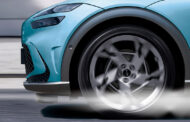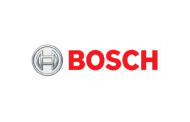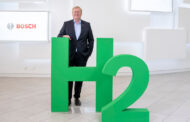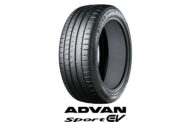Leading German automotive supplier Robert Bosch has announced that the company is venturing into the production of silicon carbide automotive chips, to help motorists deal with any anxiety that they might have with regard to the range of electric vehicles. Range anxiety is one of the main reasons that causes many motorists to hesitate about transitioning to electric vehicles.
Silicon carbide is a material that is more conductive when compared to the silicon that is used conventionally. Hence, the use of silicon carbide chips would make it possible for the chips that manage the motors in battery-powered vehicles to have higher switching frequencies and thus to throw off less heat.
According to Bosch board member, Harald Kroeger, silicon carbide semiconductors will give electric vehicles more power and can lead to a 6 percent increase in range.
Bosch plans to manufacture the silicon carbide chips at its currently operational facility in Reutlingen, near its headquarters in Stuttgart. The company is also building a new, USD 1.1 billion chip fabrication plant in Dresden.
The Dresden facility, which is the single largest investment that Bosch has madeis meant to help Bosch reinforce its leadership in sensor chips that are used for the purpose of ensuring that smartphone screens show images the right way up, and to activate airbag- or automated braking systems in cars.
Bosch also wants to strengthen its position in Application-Specific Integrated Circuits (ASICs). These are the circuits which decide how to act on sensor inputs and in the case of power electronics, they manage functions ranging from managing a car’s electric windows to its drivetrain.
The Dresden facility is located in the center of Germany’s high-tech hub known as ‘Silicon Saxony’ and is expected to become operational by late 2021. It will have a workforce of 700 staff.
The facility will use silicon wafers having a diameter of 300 mm. This large diameter will make it possible to cram more chips on a single wafer when compared to current production methods which use wafers having diameters of 150-200 mm.
Bosch’s goal is to position itself as a leading supplier of the full range of semiconductor products for the electric, connected and self-driving cars of the future.
While conventional cars have chips worth USD 370, based on industry estimates, in the case of emission-free electric vehicles this increases to USD 450. This would further increase by USD 1000 for future self-driving cars, thus making semiconductors a segment that offers plenty of scope for growth.
Infotainment features will need chips worth another USD 100 and with features that are now seen only in luxury models soon spreading to mass-market models, Bosch estimates that this figure will only grow in the future.





















